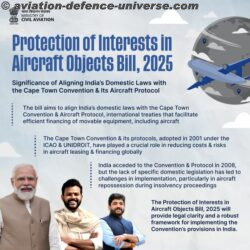New Delhi. 07 February 2022. The Government has taken several steps to address the shortage of pilots in the country. These include the following: The Airports Authority of India (AAI) has brought out a liberalised Flying Training Organisation (FTO) policy wherein the concept of airport royalty (revenue share payment by FTOs to AAI) has been abolished and land rentals have been significantly rationalised. AAI issued award letters on 31 May 2021 and 29 October 2021 for nine FTOs to be established at five airports i.e. two at Belagavi (Karnataka), two at Jalgaon (Maharashtra), two at Kalaburagi (Karnataka), two at Khajuraho (Madhya Pradesh) and one at Lilabari (Assam).DGCA has introduced Online-On Demand Examination (OLODE) for the Aircraft Maintenance Engineers (AME) and Flying Crew (FC) candidates with effect from November 2021.
This facility allows candidates to choose the date and time from the available exam slots. DGCA has modified its regulations to empower Flying Instructors with the right to authorise flight operations at FTOs. This was hitherto restricted to the Chief Flying Instructor (CFI) or Deputy CFIs only. India’s largest flying academy – Indira Gandhi Rashtriya Udan Akademi (IGRUA) at Amethi (Uttar Pradesh) – has been permitted to carry out pilot training in Gondia (Maharashtra) and Kalaburagi (Karnataka) to enhance its flying hours and aircraft utilisation, which get severely affected during winter months due to low visibility. IGRUA has commenced operating on weekends and all holidays. It completed 19,019 flying hours during the year 2021 as compared to 15,137 hours in the pre-Covid year 2019, an increase of over 25%.
The number of CPL holders produced by Indian FTOs in 2021 is 504 which is higher than the 430 CPLs holders produced by Indian FTOs in the pre-Covid year 2019.





























































































































